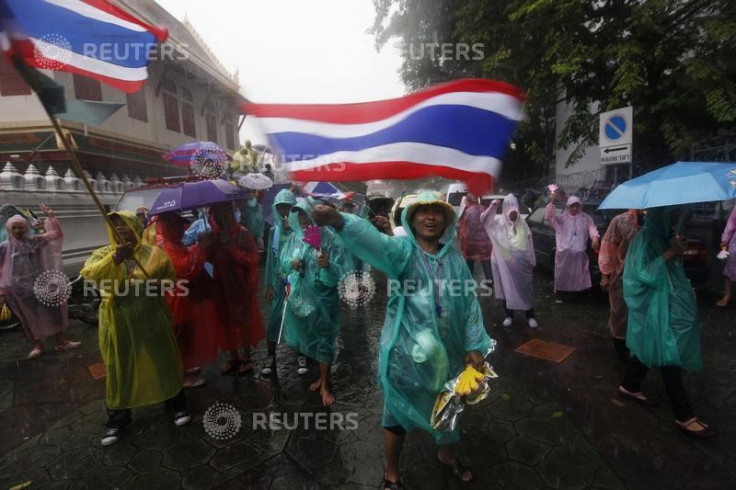Shinawatra Offers to Talk to Protesters as Siege of Thai Government Buildings Continues

Thai Prime Minister Yingluck Shinawatra offered to hold talks with the protest leaders and called for an end to the occupation of government buildings, even as about 3,000 flag-waving protesters gathered in front of the interior ministry a day after they laid seige to two other government offices.
Anti-government protesters continued to pour into Bangkok for the third consecutive day, even after Shinawatra invoked the Internal Security Act in Bangkok and surrounding areas to reign in the protesters.
The protesters urged civil servants to leave work and not to return. "On Tuesday we will seize all ministries to show to the Thaksin system that they have no legitimacy to run the country," Suthep Thaugsuban, a former opposition MP, said in a press conference from the occupied finance ministry.
Thaugsuban said the protest would be peaceful, with crowds "blowing whistles and handing out flowers".
The government ordered the evacuation of staff from the agriculture, tourism and transport ministries even as protesters marched to state offices, military headquarters and television stations across the capital.
Thousands of protesters tried to storm the Government House,which houses the offices of the prime minister and the cabinet ministers,but were unsuccessful as the buildings were heavily barricaded by the police.
The protestors retreated to Bangkok's historic quarter, an area which is popular with tourists where the protestors have reportedly set up their main stage, according to Reuters.
The protests were triggered by a controversial political amnesty bill and a series of other unpopular measures such as the government's decision to ignore the Constitution Court verdict on a previous bill.
The demonstrators claim that the amnesty bill would have allowed former leader Thaksin Shinawatra, who is in exile, to re-enter mainstream politics without serving a jail sentence for corruption.
The amnesty bill was rejected in the Senate earlier this month. But its passage in the lower house re-ignited political tensions that led to the snowballing of popular discontent into massive urban protests.
This time the government is careful not to repeat the violent showdown with the anti-government protesters three years ago that left more than 80 civilians dead and about 2,100 injured.
"While the government will enforce the laws it will not use force against the people," the prime minister said.
The protesters want Yingluck to step down as they say she is running a shadow government on behalf of her brother, former prime minister Thaksin Shinawatra, who was dislodged from his position in a 2006 military coup.
"We have stood by silently while her [PM Yingluck Shinawatra's] brother calls the shots and she runs the country into the ground with loss-making policies," a protester Suwang Ruangchai was quoted by Reuters news agency as saying.
© Copyright IBTimes 2025. All rights reserved.





















